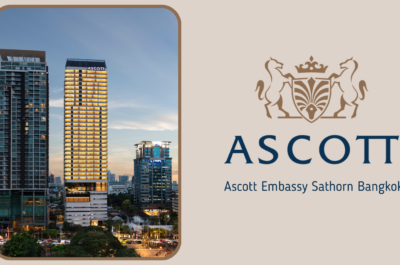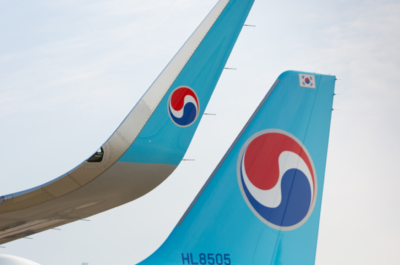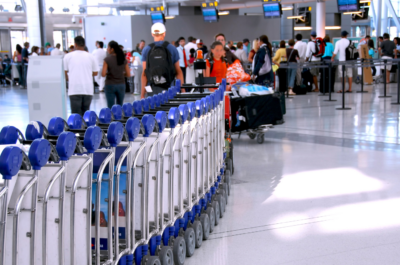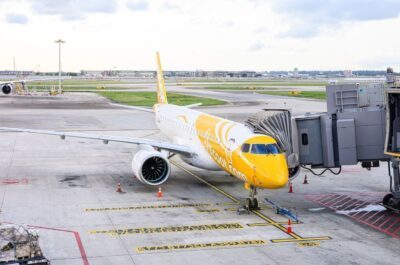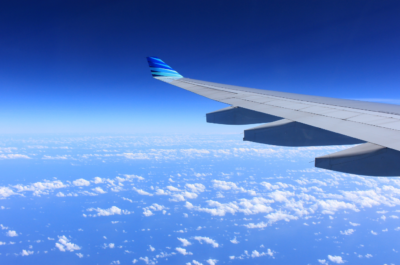The doors of 27 European countries will fling open on Wednesday to a new wave of wealthy Chinese tourists…
The doors of 27 European countries will fling open on Wednesday to a new wave of wealthy Chinese tourists , heading for Europe`s shops and sites, under an agreement signed between the EU and China last month.
France, Switzerland and Italy are the three top destinations, according to travel agents.
But the list of countries to which Chinese tourists can now go on officially approved tours is much longer, including all nations of the European Union – save for Britain, Denmark, Ireland – as well a few countries outside the EU.
I really want to visit Athens, Paris and Vienna – cities with a soul, with a character, said a 28 year-old journalist surnamed Zhang.
According to state media, 20.2 million Chinese tourists travelled abroad in 2003, up 21 percent from the previous year.
But the potential market for organised tours is much larger, with designated Chinese travel agencies, selected by the Chinese National Tourism Administration, organising the trips.
Until a few years ago, very few destinations were approved for such trips but the controls on the outflow of tourists are slowly being lifted as China seeks reciprocal agreements with foreign countries allowing foreign tourists into China.
And as the Chinese economy continues to grow, the number of Chinese tourists heading overseas each year is expected to grow to around 100 million by 2020 in a major shot in the arm for not just China but the world`s travel industry.
It will have a stimulating effect on the travel and airline industry, for sure, said Dun Jidong, marketing manager of the outbound division of China Travel Service.
In the long-run, the European market is very resourceful and there is a lot of potential in the future development of a variety of tours.
Those allowed to go on these trips will still come from a fairly small strata of Chinese society.
The cheapest package on which they will be allowed to head abroad will cost 11,000 yuan (US$1,325) which will put it out of the reach of most people in a country where average annual income stands at around US$1,000.
The authorities also have obvious concerns about people wanting to leave China not to return.
To ensure that this does not happen, all those travelling will be required to pay a deposit of 50,000 yuan (about US$6,000), and proof of another 50,000 yuan deposited in a bank account for at least six months.
They will need to provide a letter of employment and guarantee from their company, plus a photocopy of their company`s business licence.
For most of those heading to Europe, the main reason will be to shop and visit well-known tourist sites.
Many will be willing to splash out on shopping, especially when this is their first trip abroad. I expect many people would also just want to have a look around and gain a brief idea of these countries, said Zhang Guangrui, director of the tourism research centre at the Chinese Academy of Social Sciences.
But political scientists also speculate about the impact such trips, however tightly controlled, will have on the attitudes of those who come from a country where access to information is so restricted.
It will be a positive element in the progress towards China becoming a more democratic, liberal and civilised place, said Shi Yinhong, a professor of international relations at the People`s University in Beijing.
Already, many of the Chinese tourists who were allowed into Hong Kong last year under a similar agreement showed their interest in political freedoms in the city, buying books and magazines on sensitive political topics banned in China.
Some even joined political demonstrations, said Chan Kin-man, a sociology professor at the Chinese University of Hong Kong.
Meanwhile, the Chinese media is also keen to ensure that the tourists will act in a way that does not embarrass their home country.
The Beijing News last week published a special supplement on travel to Europe, giving Chinese tourists pre-departure advice on how to behave.
An article headlined Say goodbye to bad habits when travelling abroad urged Chinese tourists to say thank you to waiters, queue up in restaurants and avoid littering, spitting, smoking and talking loudly in public.
These are minor things in our daily lives and are part of our personal behaviour, but when we are abroad, they represent the image of the Chinese people, it said.
Theodore is the Co-Founder and Managing Editor of TravelDailyNews Media Network; his responsibilities include business development and planning for TravelDailyNews long-term opportunities.






